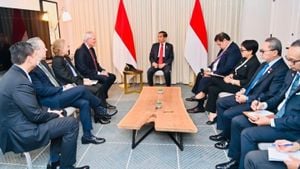The Australian government has made headlines with its ambitious commitment to healthcare reform, marking what is being hailed as the largest overhaul of Medicare since its inception. Prime Minister Anthony Albanese has announced a staggering $8.5 billion package aimed at transforming the healthcare system, particularly enhancing the bulk billing processes available to Australians.
This significant funding is set to reshape the way healthcare is accessed by ordinary Australians, with aims to expand bulk billing, which currently allows certain patients to visit general practitioners (GPs) without out-of-pocket expenses. Under the new initiative, approximately 26 million Australians will benefit, promising to triple the incentives offered for bulk billing practices.
Prime Minister Albanese emphasized the importance of accessible healthcare during the announcement, stating, "The only card you need is your Medicare card." He reassured the public of the government’s commitment to maintaining the fundamental values upon which Medicare was established, reinforcing the idea of healthcare as a guaranteed right for all Australians.
The ambitious plan aims to allow nine out of ten GP visits to be free by the decade's end by scaling up friendly payment options. This major overhaul includes significant incentives for clinics willing to adopt bulk billing practices, hoping to make it more broadly available following years of austerity measures. Already, about 47.7% of patients are reported to have paid the full fees to their GPs as of late 2024, highlighting the urgency for change.
The funding package isn't limited to just the operational aspects of bulk billing; it also encompasses significant educational investments, including scholarships for 400 nursing candidates and the training of around 2,000 additional GPs. Albanese described these initiatives as pivotal for creating stronger, more resilient healthcare services throughout Australia. He expressed, "A well-supported health system is central to building strong communities and economies."
Adding urgency to the dialogue, Albanese stated, "We don’t want the American health care system," signaling the government's intention to steer clear of privatized healthcare models, which have created disparities across various regions. The Prime Minister argued for maintaining and developing Australia's system, aligning it against the backdrop of rising healthcare costs and increasing patient demand.
The opposition, led by Peter Dutton, has not remained silent following the funding announcement. Dutton criticized the Labor government for previous healthcare-related austerity measures and claimed responsibility for the closures of 272 GP clinics. He noted, "The previous government has seen over 272 clinics close," underscoring his party's focus on the symptomatic issues of accessibility and availability in Australian healthcare.
Dutton also promised his coalition's support for the $8.5 billion funding plan but underlined the importance of prudent economic management, stating, "Opposition will support $8.5 billion on ‘dollar for dollar’ basis." He echoed concerns from constituents who have suffered from increased costs of visiting GPs under previous administrations.
Health Minister Mark Butler reiterated the necessity of the investment, stating it is not merely about numbers but rather about providing certainty and accessibility to healthcare services, calling this overhaul of Medicare "the heart of this government’s policy moving forward."
With the investments strategically aimed at increasing access and affordability, the government hopes to ease the burden on communities experiencing healthcare deficiencies. Many communities, especially those with fewer economic resources, anticipate these changes to bring about significant health outcomes and economic relief.
Healthcare experts warn, nonetheless, of the challenges lying on the horizon, including the practical implementation of these expansive programs. How effectively the administration can roll out these initiatives remains to be seen, particularly with the goals they have set forth.
Community advocates and healthcare professionals alike are keeping close watch on how these changes, if fully implemented, could reshape access to necessary health services. With significant public backing for the funding discussions indicating widespread concern over healthcare access, the Albanese government’s new policies might become pivotal not just for health but also for economic recovery.
Only time will tell if this plan will address the shortcomings previously observed alongside any new economic pathways for improving the wellbeing of all Australians.



